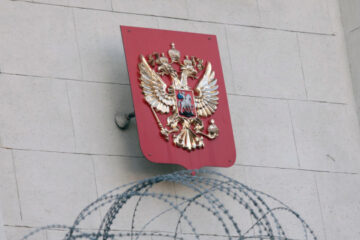Rémy Rioux, CEO of the French Development Agency (Agence Française de Développement, AFD) this week came on a first official visit to Ukraine, a year after the opening of AFD’s representative office in Kyiv. However, AFD Group has been involved with the country for much longer, thanks to its subsidiary Expertise France, which has been operating here since 2006, implementing 18 technical projects worth EUR 60 million. Another subsidiary of the Group, Proparco, is dedicated to the private sector, providing investments to support the Ukrainian SME fabric.
This extended and diversified presence enables the Group to provide concrete support for the reforms required for European convergence, as well as for Ukraine’s reconstruction and recovery.
The CEO arrived in Ukraine just a month before the Ukraine Recovery Conference in Rome, aiming to highlight the operational acceleration of the Group and reaffirming long-term commitment to Ukraine’s transformation.
Ukrinform sat down with Monsieur Rioux, a career professional in economics and international financial institutions, to learn more about the Group’s ongoing contribution and plans for future assistance.
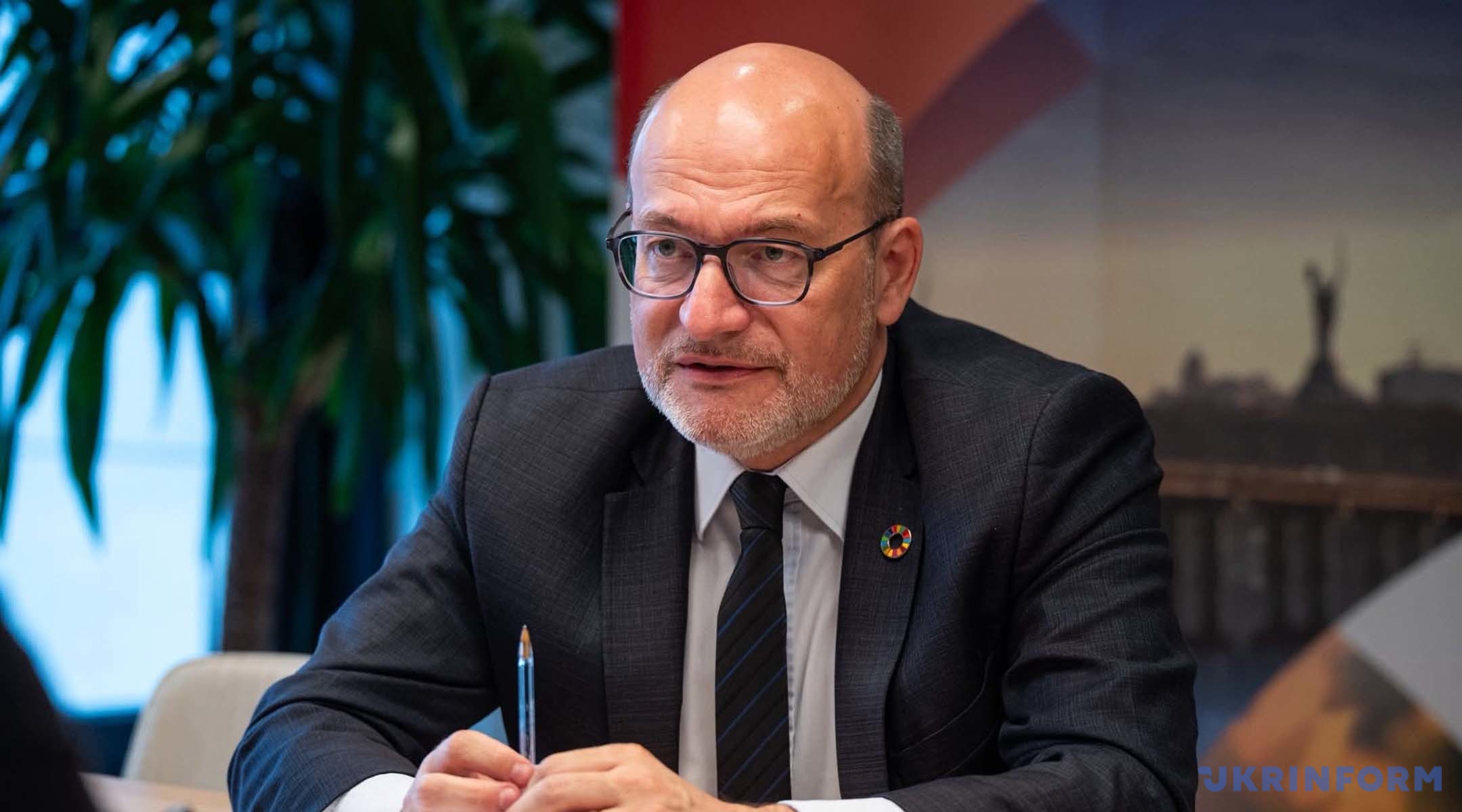
– What is AFD Group and what are their key goals and activities in Ukraine
– Agence Française de Développement is basically France’s international public development bank, a bit like the World Bank. AFD is the oldest institution of this kind. Then we served as a financial instrument to support French Resistance at that time. Along with the UK, we were present in Africa before turning into a body to accompany France all over the world. Now we are operating in 150 countries. Ukraine is one of the latest countries where we were asked (by the French government) to intervene.
The volume of our international activities is about EUR 14 billion a year, which is about the size of EBRD and probably bigger than the EIB. We embark our French experience, including the experience of war and what it means to finance and to intervene in all these sectors in hard times.
We have three components to the Group: AFD, Expertise France, and Proparco. The purpose of my visit is to show the authorities that we fully deploy the Group’s toolkit here in Ukraine.
AFD, the mother entity, finances public clients, including municipalities, public institutions, and infrastructure projects through grants and non-sovereign loans. Since 2024, AFD has been providing structural financing to support cities, institutions and regions in their resilience and reconstruction efforts.
Our subsidiary Proparco finances the private sector. It supports Ukrainian small and medium-sized enterprizes and private sector resilience through equity investment and financial tools. It is here to support the Ukrainian SME fabric, and is pursuing its prospecting activities in the agrifood, energy and trade finance sectors.
In fact, as we had a meeting with Prime Minister Denys Shmyhal early this month in Paris, he was very insistent about supporting SMEs, ecosystems for private initiatives, and the financial system that would be consistent with this ecosystem.
Our second subsidiary is Expertise France, which can be compared with UNDP or UNOPS. It’s not a financial institution. It’s about capacity-building, technical cooperation, and accompanying reforms. It is currently running 18 ongoing projects worth over EUR 60 million, funded by France and the EU, in key areas such as health and social protection, local governance, justice, public innovation and decentralization.
So the idea is to have all the instruments so that we don’t have to be governed by instruments.
I’m here to learn more about Ukraine, although it’s a really modest threeday visit. But we have over 60 people working at our representative office here, so they are well aware of the situation and they explain to me the existing challenges and how we could combine our instruments to be able to deliver a stronger impact.
– As AFD is basically a bank, do you cooperate with other financial institutions here?
– Of course, since we are a bank, all banks like to work with each other. They like to share the risks and cooperate. We are here to complement what others are already doing and add value where possible. As I mentioned, there’s World Bank that is present here, there’s EIB, EBRD.
We are also very much interested in our peers at the national level because AFD is both international and national. We are also financing municipalities in France. We know what we’ve succeeded in, what we’ve missed, and that’s what we can share with Ukrainian colleagues, including our long history. We know how war impact the financial system. We have the idea of channelling resources also through the three main public banks here, which is Ukreximbank, Ukrgasbank, and Oschadbank, but we are also interested in commercial banks to fully support the financial system.
– Can you dwell more on the specifics of your intervention in Ukraine?
– There were two different phases in our intervention. We were initially called in an urgency mode back in 2022. That’s when we provided budget support to help Ukraine withstand the full-scale invasion and have basic public services continue uninterrupted. So we provided about EUR 400 million at that time. We also did as much as we could to invite French non-governmental organizations, civil society organizations, especially those with a specific experience in what Ukraine was facing at the outset of the invasion. We actually manage a big platform of French NGOs intervening abroad. This includes various areas, such as the role of women in crisis settings, mental health issues, etc.
Before the war, Expertise France implemented the EU Project Pravo-Justice on behalf of the European Union, focusing on justice sector reforms. Following the full-scale invasion in 2022, the project was rapidly reoriented to address urgent needs, with an initial focus on supporting the Office of the Prosecutor General in documenting war crimes. Since then, an accountability component has been fully integrated alongside continued support for justice reform.
As latest stage of the war, which I know had started over a decade ago, raged on, questions of the reform agenda and the economy came back, including in the context of Ukraine’s EU accession path.
I’m here to take stock of where we are one year after the visit of President Volodymyr Zelensky to Paris, where I signed in front of the two presidents an intergovernmental agreement that gave us the green light to work here in Ukraine. So this second phase is more about strengthening local actors. I can say we’re almost obsessive at AFD about elevating the game, the capacities of national and sub-national institutions.
And we are not focused on sectors. AFD is like Noah’s Ark. We need to have experts in all sectors, you need to have all the expertise so that you can understand the needs and respond more effectively. And these needs these are mostly local. Of course, they can be national, such as national policies, but when it comes to implementation, they are really local.
So we organize our work by categories of actors rather than sectors. And we have a clear division of labor. Expertise France, with the longest experience here in the country, is here to work with national and subnational public institutions both at central and local levels. Most of our team is Ukrainian, so they know how the government is functioning and best way to accompany the reform agenda. In turn, Proparco invests in equity, in SMEs to work with the financial system, to do trade finance. It’s about identifying private entities’ needs in Ukraine’s current context. And finally, with the third element AFD, we decided to focus for now on financing to municipalities.
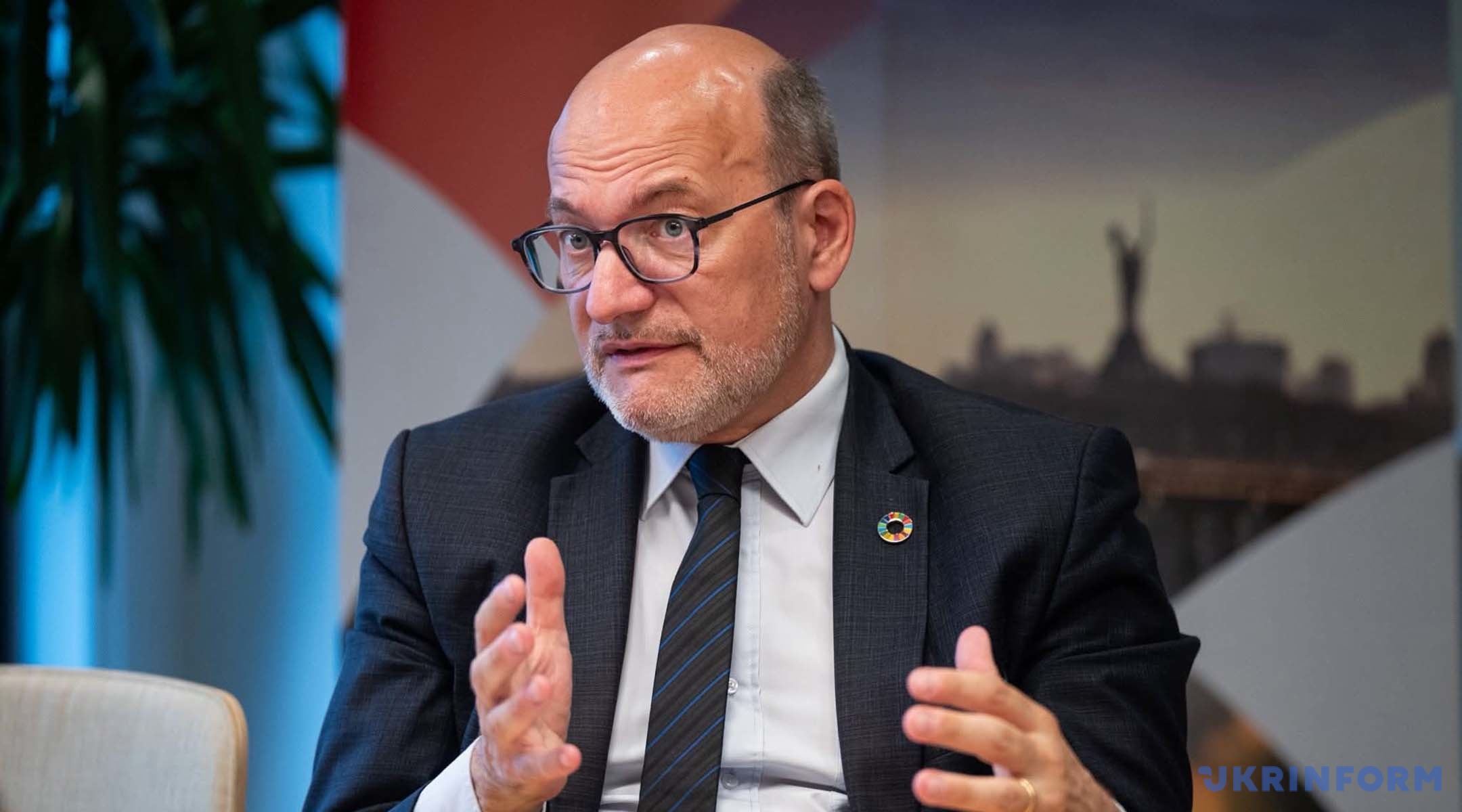
– Any particular examples of your cooperation with municipalities?
– We went to Odesa and saw that healthcare is a major issue. We visited their municipal hospital No. 1, where we’re financing a mental health program. By the way, our efforts are a joint effort, including with the initiatives run by First Lady Olena Zelenska. Last year, in Berlin during Ukraine Recovery Conference, Expertise France signed the Memorandum of Understating for creation of one more Superhumans centre. The approach to this issue has to be systematic, going beyond some one-off intervention. This is about a long policy. And your First Lady is working closely with the Ministry of Health, and what we do is help implement what the MoH does in terms of improving the mental health assistance network. So it’s a combination of public, private, and civil society organizations’ work in this sector. We are funding the EUR 5 million REHAB 1 project to enhance mental health and rehabilitation services in Odesa.
We’re also running mAIDan programme, technical assistance facility for Ukraine contributing to resilience, reconstruction, and the EU accession process in Ukraine, and L’initiative (MEAE-funded) programme to improve access to health services for vulnerable groups, especially regarding HIV and tuberculosis.
Also, we will finance a new Superhumans Center initiative. This is a EUR 4.5 million project, to be implemented by Expertise France, where EUR 4 million is from the Crisis Center at MFA France in a shape of subsidy, and another EUR 500,000 is AFD.
We will also be heading to Lviv where our current assistance revolves around mobility and transportation, because from the discussion with the mayor we saw that this was where they wanted France, through AFD, to play a role. I am signing a first grant agreement by AFD in Ukraine, which is EUR 5 million in funding to support the creation of a new public bus corridor that will connect the Unrboken rehabilitation hospital, a national symbol of recovery, with the city’s northern neighborhoods, home to over 150,000 internally displaced persons. This mobility plan includes dedicated bus lanes, sidewalk and road upgrades, bicycle paths, urban lighting, and future-proof infrastructure for tram or trolleybus lines.
We’re in discussion with Kryvyi Rih’s authorities who designate water management as their priority so we mobilize other colleagues that run water sanitation projects around the world so they come here with their attention and experience.
In Chernihiv, EF helped local authorities conserve the roof of the local Drama Theater hit by a Russian missile, and supported reconstruction of several other civilian institutions also affected by shelling, including a polytechnic institute, a movie theater, and a clinic.In the same Chernihiv region, we’ve been helping communities recover from the war impact, coordinating peer-to-peer cooperation between French and Ukrainian communities.
Also, in Kharkiv, we’re interested in the future project for affordable housing.
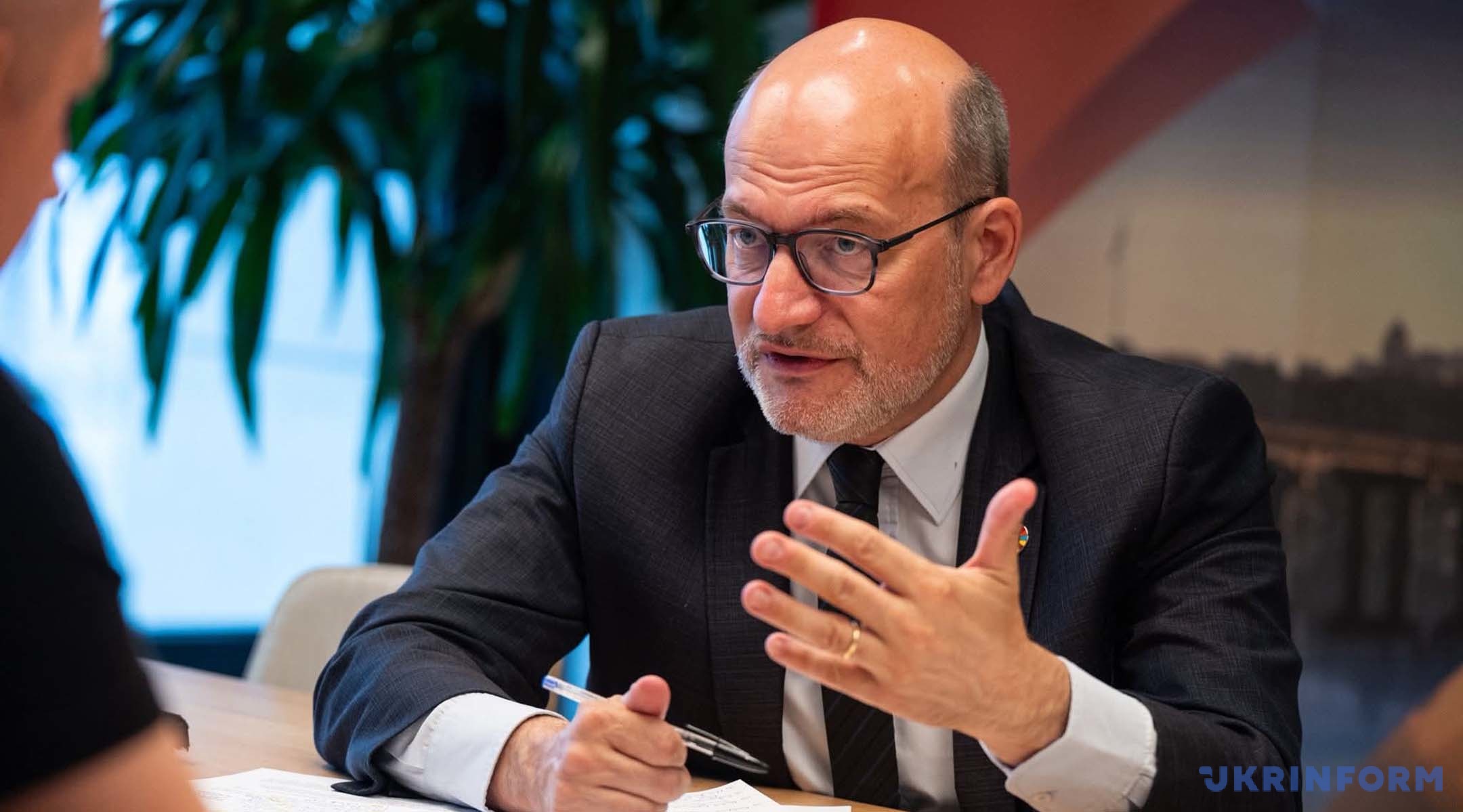
– What are the overall numbers when we speak of your investment across all projects in Ukraine?
– AFD’s mandate is part of France’s broader response to the war in Ukraine, which includes €400M in emergency loans to the Ukrainian government at the outset of the war; coordinated efforts with the EU under the Ukraine Facility and the Single Project Pipeline; and support for Ukraine’s EU integration path through projects aligning with European standards.
The second phase of our intervention weighs approximately as much as the first one. When the existing envelope is exhausted, our government asks us to deploy another EUR 450, so two years from now, our investment will have amounted to nearly a billion euros since 2022.
It’s not that much, but it’s complementary to what bigger players are doing and the Ukrainian government is deploying.
We are a development institution. We might not be too visible but we’re here to bring something that will speed up transformation. Someone may do something fantastic, with high public visibility, but at the same it will have low traction with public policy or local actors, it doesn’t strengthen institutions, so things like that are not too interesting to us. We can make a better use of the scarce resources and contribute to structural change. That’s our experience from more than 80 years of investments all over the world.
– It seems that a bus lane in Lviv is an example of such hardly visible contributions that at the same time help the community in the long run.
– Exactly. Well, we’re not a humanitarian organization but we intervene in moments of crisis.
In fact, any crisis, any war is insightful in terms of how the structures of the society and an economy is fully exposed and how the pre-war balance is changing. You can have a structural, helpful and positive changes. In a war. You need to have all the components, including military, humanitarian, diplomatic, but you also need people thinking long-term, about reforms and transformation.
– Do you see this feedback here in Ukraine? Do you feel people here reflect on those things the same way as your vision stands?
– Of course. In general, these elements must not be successive. Some might think that first you have a military element before you engage in humanitarian efforts, and then the diplomats finding a solution, and only at the end, you have people coming to invest in infrastructure and public policies. No, this would be wrong. There must be a continuum. You need to have all these elements, all these people engaging at the same time.
It’s about finding the best balance between all the tools and interventions, and this is what is happening now in Ukraine, what we are trying to do.
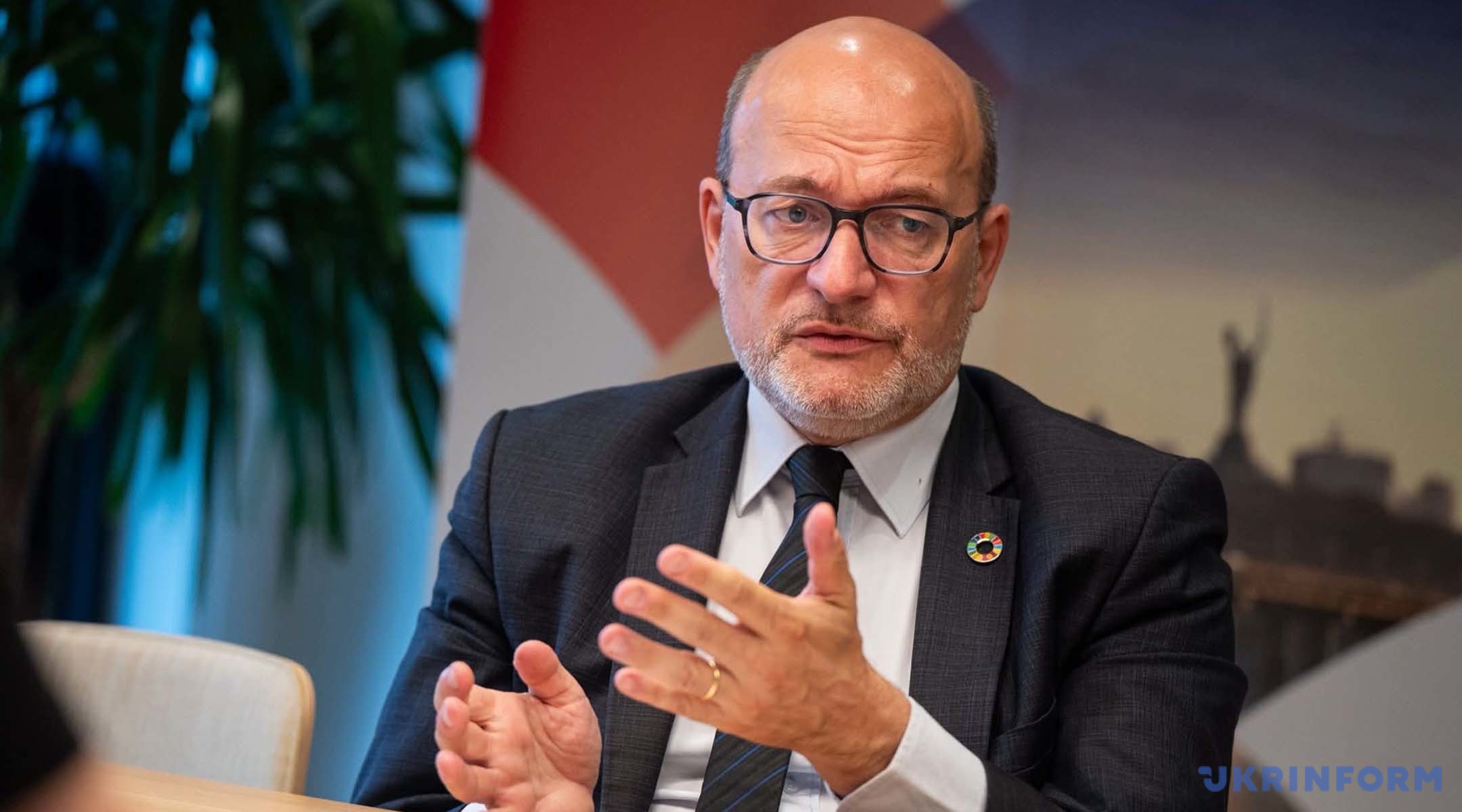
– You worked in multiple countries, you managed different crises. How do you feel Ukraine is different? At the level of municipalities and communities, how do you see they respond to the realities of war? Do you see any insights for France as well that you could share with colleagues at home?
– Sure, we’re all impressed by the rectitude and resilience of the Ukrainian people. Your people’s reaction is not a given, actually. My parents were infants in 1940s, and they told me they spent days, even months in shelters. While we heard these stories, we have enjoyed the privilege of peace, built by the European Union since the 1950s so our generation has no such experience. So when I say that your people’s stance is not a given, I mean we don’t know how our countries would react to such a crisis today. From what I read about Ukraine from Paris and what I learned over these days in Ukraine is that you took a very hard but very inspiring route. And I’m sure that, with the support of all international parties, you will prevail.
Of course, after the war there will be other challenges, like everywhere, but you probably know better than I the sense of unity, focus, commitment, and discipline. And that’s a lesson for all of us.
Ukraine is a place where we innovate, go further, and draw lessons for our own transformation, including, for example, in how we better assist wounded persons.
– Many foreigners coming to Ukraine are impressed of uninterrupted services Ukrainian businesses are providing despite war. That’s including cafeterias reopening hours after being affected by drone strikes, postal service delivering packages on time, trains running on schedule… Perhaps you could share some stories of someone who inspired you?
– We met a veteran, who had both his legs amputated. In just two months, thanks to the Superhumans, he received his prosthetics and was back on his feet. And I think they did this for some 1,000 veterans. So he gave me a gift, a badge that says “From Vet to Vet”, which means in his civil life he was a veterinarian.
But now he wants to somehow join the work on rehabilitation support in Odesa. By the way, my father also had both his legs amputated but it took him so long to stand back up and the kind of help our health institutions were providing him doesn’t stand close to what Superhumans offers.
Also impressive are stories of those working to help war-affected families, children in particular. There are special mobile units and doctors, psychologists traveling to small towns, coming to local schools to have conversations with children and see how they can help them. Of course, they also train teachers how to manage various challenging situations. There’s a Childhood without Violence project that offers children and their parents pillars of mental support, teach them to live a normal life despite war.
We started projects to professionally consult women, whose husbands are now on the frontlines, and who need to run small businesses to take care of their family.
– By the way, the field of health care was one of those where USAID was actively engaged before the new administration in the US decided to cut their programs. Do you feel that you are sort of filling the gap that’s been created with their exit? Here in Ukraine people were really upset about their withdrawal, did you have the same reaction?
– Yes, actually, here’s an example that’s very concrete. All the programs we run in the area of mental health are also implemented at the central level and the impact of USAID withdrawal was that the staff that implements our program at social level suddenly became unemployed. So it means that all the reform they were trying to implement at a central level, they could not proceed. So, what we did, although it’s small support, we stepped in and deployed the team to compensate the gap that appeared.
– So you are indeed filling the gap.
– We are trying, indeed, but it’s a small proportion.
The decision to cut USAID programs was a shock to us as it reverberated in our ecosystem of development financing. USA was very strong in very specific issues, and health care was one of them, along with democracy support. Previously, the USA would accompany media, free press, NGOs in this area.
But now the European Union is doing more in this field. Still, some people tend to forget the overall size of EU support. This includes defense aid as well. That’s because you have to first do the additions to see the scope of what Europe is doing, if you add what France is doing to what Germany, Italy, Poland are doing, as well as the UK Norway, or Switzerland. So if you do the addition, you see that, actually, Europe is three times bigger than the US. When you look at ODA (official development assistance), which is the way we count this type of financing, the overall ODA was $225 billion a year. The U.S gave 60 billion, and larger Europe gave 160 billion.
So, I hope that, especially because as we see the perspective of you EU accession, we will bring our act together to further affirm our assistance and contribute even more.
Yevhen Matiushenko, Kyiv
Photo: Danylo Antoniuk


